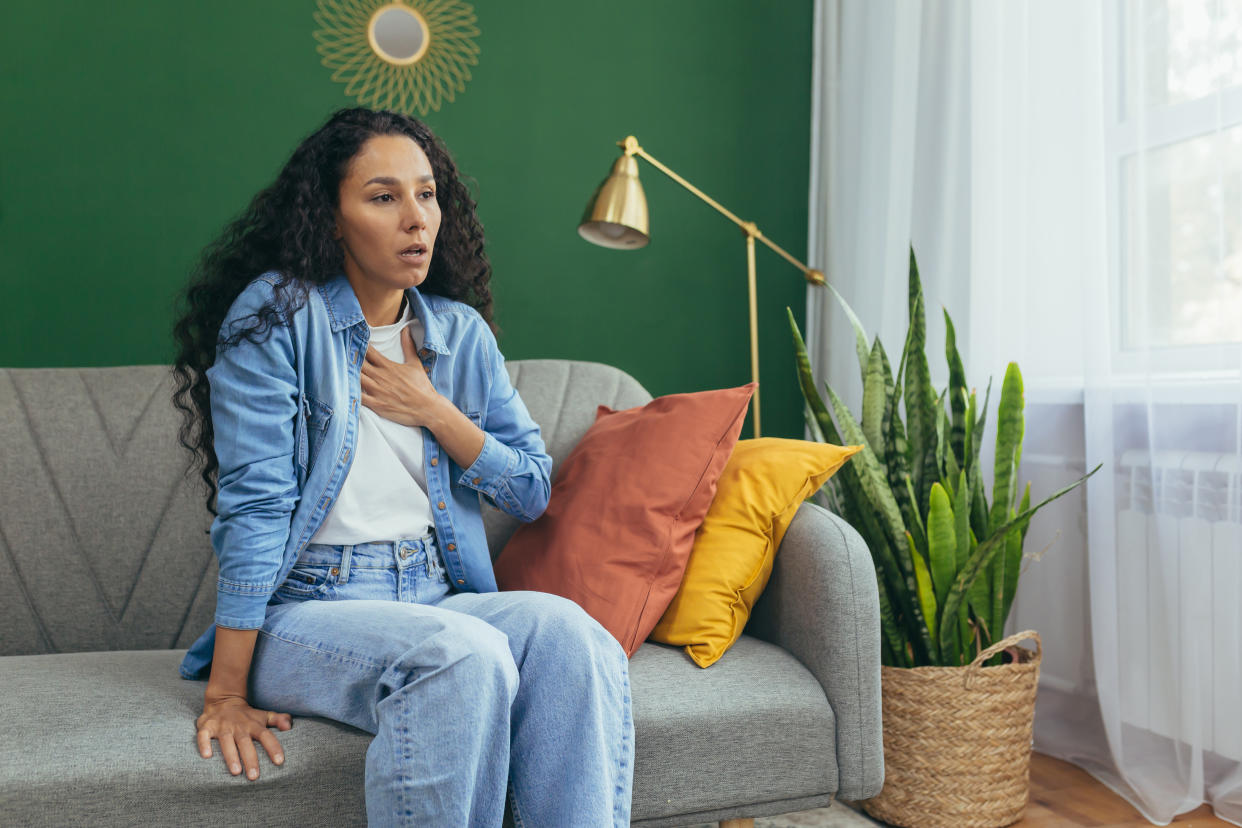Can you stop a panic attack? Here's what experts say you should know.

If you've ever experienced a panic attack, you already know how overwhelming the symptoms can be. From intense feelings of fear to heart palpitations and dizziness, panic attacks can leave you feeling exhausted, scared, hopeless and out of control.
Fortunately, you can learn how to respond and manage the impact panic attacks have on you by recognizing and responding to the early signs. We'll explain what causes panic attacks, how to prevent them and the coping strategies you can use when you're having one. And for more hands-on help, you can check out the best online therapy options for anxiety.
Content concerning mental health is for informational purposes only and is not intended as professional medical or health advice. Consult a medical professional for questions about your health. If you are experiencing a mental health emergency, call 911, local emergency services, or 988 (the Suicide and Crisis Lifeline).
What are panic attacks?
Panic attacks are sudden, intense feelings of fear that can cause physical reactions in response to nonthreatening situations, according to the Cleveland Clinic. They can cause you to feel like you're having a heart attack or you're going to die, while also experiencing extreme panic and fear of losing control.
"Panic attacks are provocations of a flight or fight response when there is no actual danger," Dr. Ramaswamy Viswanathan, president of the American Psychiatric Association, tells Yahoo. They're discrete episodes with a sudden surge of intense fear, and they can be followed by symptoms of dizziness, heart palpitations, breathlessness, rapid breathing, trembling, sweating and nausea, Viswanathan says.
Each panic attack can last anywhere from a few minutes to 30 minutes, although this varies from person to person and longer panic attacks are possible.
What causes panic attacks?
Experts aren't exactly sure why some people experience panic attacks, but researchers think dysfunction of the amygdala (the part of the brain responsible for processing your emotions) may play into them.
Panic attacks are often triggered when a person is away from sources of safety or in situations where they aren't in control to escape, Viswanathan says. However, they can happen without an obvious trigger too. "There is a strong fear-of-fear component with a panic disorder, wherein people develop an intense fear that they might develop a panic attack," he adds.
Can you stop a panic attack?
While you can't just flip a switch and "turn off" a panic attack, there are coping strategies that can minimize the intensity of a panic attack and slow it down.
Slow down your breathing: Taking slow, deep breaths and closely paying attention to each breath can help alleviate panic attacks. You can try following the 4-4-4 breathing method, which involves exhaling, inhaling and holding your breath, all in four-second increments.
Distract yourself: Before your panic attack gets too intense, find a distraction such as listening to an uplifting song or calling someone who will make you feel better.
Move around: If you feel a panic attack coming on, take a walk around the block or pace around your living room floor.
How can you prevent panic attacks?
Here are some methods you can try to prevent panic attacks before they occur.
Exposure therapy: Deliberately provoking symptoms and facing them under professional guidance can be very helpful, Viswanathan says.
Exercise regularly: Movement is medicine for both physical and mental health. "Exercise activates frontal regions of the brain responsible for executive function, which helps control the amygdala, our reacting system to real or imagined threats to our survival," according to Harvard Medical School.
Relaxation techniques: Yoga and meditation can help lower anxiety and make you less prone to panic attacks, Viswanathan says.
Can you treat panic attacks?
Cognitive behavior therapy (CBT) is important in the treatment of panic disorders, Viswanathan says, and many people are also prescribed antidepressant medications that help boost serotonin, which helps regulate mood. CBT emphasizes helping individuals learn to be their own therapists, according to the American Psychological Association.
People often experience an initial rise in anxiety and engage in modes of thinking that spiral out of control, Viswanathan says. With CBT, you can learn to recognize anxious thought patterns and remind yourself that nothing terrible is going to happen.
If you're interested in therapy, we've rounded up affordable online therapy providers, as well as the best online psychiatry services and best online therapy services.


